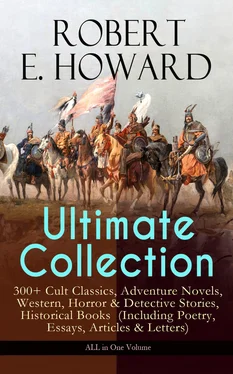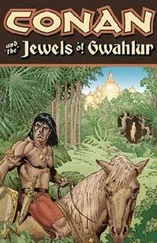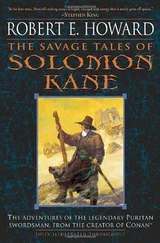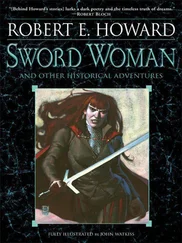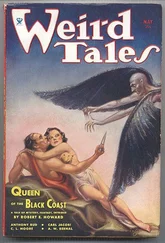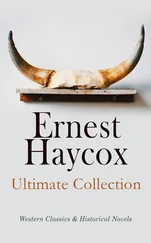As has been said, Arus was a practical man. He dwelt among the Picts and found much that an intelligent man could do to aid humanity, even when that humanity was cloaked in tiger-skins and wore necklaces of human teeth. Like all priests of Mitra, he was instructed in many things. He found that there were vast deposits of iron ore in the Pictish hills, and he taught the natives to mine, smelt and work it into implements—agricultural implements, as he fondly believed. He instituted other reforms, but these were the most important things he did: he instilled in Gorm a desire to see the civilized lands of the world; he taught the Picts how to work in iron; and he established contact between them and the civilized world. At the chiefs request he conducted him and some of his warriors through the Bossonian marches, where the honest villagers stared in amazement, into the glittering outer world.
Arus no doubt thought that he was making converts right and left, because the Picts listened to him, and refrained from smiting him with their copper axes. But the Pict was little calculated to seriously regard teachings which bade him forgive his enemy and abandon the warpath for the ways of honest drudgery. It has been said that he lacked artistic sense; his whole nature led to war and slaughter. When the priest talked of the glories of the civilized nations, his dark-skinned listeners were intent, not on the ideals of his religion, but on the loot which he unconsciously described in the narration of rich cities and shining lands. When he told how Mitra aided certain kings to overcome their enemies, they paid scant heed to the miracles of Mitra, but they hung on the description of battle-lines, mounted knights, and maneuvers of archers and spearmen. They harkened with keen dark eyes and inscrutable countenances, and they went their ways without comment, and heeded with flattering intentness his instructions as to the working of iron, and kindred arts.
Before his coming they had filched steel weapons and armor from the Bossonians and Zingarans, or had hammered out their own crude arms from copper and bronze. Now a new world opened to them, and the clang of sledges re-echoed throughout the land. And Gorm, by virtue of this new craft, began to assert his dominance over other clans, partly by war, partly by craft and diplomacy, in which latter art he excelled all other barbarians.
Picts now came and went freely into Aquilonia, under safe-conduct, and they returned with more information as to armor-forging and sword-making. More, they entered Aquilonia's mercenary armies, to the unspeakable disgust of the sturdy Bossonians. Aquilonia's kings toyed with the idea of playing the Picts against the Cimmerians, and possibly thus destroying both menaces, but they were too busy with their policies of aggression in the south and east to pay much heed to the vaguely known lands of the west, from which more and more stocky warriors swarmed to take service among the mercenaries.
These warriors, their service completed, went back to their wilderness with good ideas of civilized warfare, and that contempt for civilization which arises from familiarity with it. Drums began to beat in the hills, gathering- fires smoked on the heights, and savage sword-makers hammered their steel on a thousand anvils. By intrigues and forays too numerous and devious to enumerate, Gorm became chief of chiefs, the nearest approach to a king the Picts had had in thousands of years. He had waited long; he was past middle age. But now he moved against the frontiers, not in trade, but in war.
Arus saw his mistake too late; he had not touched the soul of the pagan, in which lurked the hard fierceness of all the ages. His persuasive eloquence had not caused a ripple in the Pictish conscience. Gorm wore a corselet of silvered mail now, instead of the tiger-skin, but underneath he was unchanged – the everlasting barbarian, unmoved by theology or philosophy, his instincts fixed unerringly on rapine and plunder.
The Picts burst on the Bossonian frontiers with fire and sword, not clad in tiger-skins and brandishing copper axes as of yore, but in scale-mail, wielding weapons of keen steel. As for Arus, he was brained by a drunken Pict, while making a last effort to undo the work he had unwittingly done. Gorm was not without gratitude; he caused the skull of the slayer to be set on the top of the priest's cairn. And it is one of the grim ironies of the universe that the stones which covered Arus's body should have been adorned with that last touch of barbarity—above a man to whom violence and blood-vengeance were revolting.
But the newer weapons and mail were not enough to break the lines. For years the superior armaments and sturdy courage of the Bossonians held the invaders at bay, aided, when necessary, by imperial Aquilonian troops. During this time the Hyrkanians came and went, and Zamora was added to the empire.
Then treachery from an unexpected source broke the Bossonian lines. Before chronicling this treachery, it might be well to glance briefly at the Aquilonian empire. Always a rich kingdom, untold wealth had been rolled in by conquest, and sumptuous splendor had taken the place of simple and hardy living. But degeneracy had not yet sapped the kings and the people; though clad in silks and cloth-of-gold, they were still a vital, virile race. But arrogance was supplanting their former simplicity. They treated less powerful people with growing contempt, levying more and more tributes on the conquered. Argos, Zingara, Ophir, Zamora and the Shemite countries were treated as subjugated provinces, which was especially galling to the proud Zingarans, who often revolted, despite savage retaliations.
Koth was practically tributary, being under Aquilonia's 'protection' against the Hyrkanians. But Nemedia the western empire had never been able to subdue, although the latter's triumphs were of the defensive sort, and were generally attained with the aid of Hyperborean armies. During this period Aquilonia's only defeats were: her failure to annex Nemedia; the rout of an army sent into Cimmeria; and the almost complete destruction of an army by the Æsir. Just as the Hyrkanians found themselves unable to withstand the heavy cavalry charges of the Aquilonians, so the latter, invading the snow-countries, were overwhelmed by the ferocious hand-to-hand fighting of the Nordics. But Aquilonia's conquests were pushed to the Nilus, where a Stygian army was defeated with great slaughter, and the king of Stygia sent tribute—once at least—to divert invasion of his kingdom. Brythunia was reduced in a series of whirlwind wars, and preparations were made to subjugate the ancient rival at last—Nemedia.
With their glittering hosts greatly increased by mercenaries, the Aquilonians moved against their old-time foe, and it seemed as if the thrust were destined to crush the last shadow of Nemedian independence. But contentions arose between the Aquilonians and their Bossonian auxiliaries.
As the inevitable result of imperial expansion, the Aquilonians had become haughty and intolerant. They derided the ruder, unsophisticated Bossonians, and hard feeling grew between them—the Aquilonians despising the Bossonians and the latter resenting the attitude of their masters – who now boldly called themselves such, and treated the Bossonians like conquered subjects, taxing them exorbitantly, and conscripting them for their wars of territorial expansion—wars the profits of which the Bossonians shared little. Scarcely enough men were left in the marches to guard the frontier, and hearing of Pictish outrages in their homelands, whole Bossonian regiments quit the Nemedian campaign and marched to the western frontier, where they defeated the dark-skinned invaders in a great battle.
This desertion, however, was the direct cause of Aquilonia's defeat by the desperate Nemedians, and brought down on the Bossonians the cruel wrath of the imperialists—intolerant and short-sighted as imperialists invariably are. Aquilonian regiments were secretly brought to the borders of the marches, the Bossonian chiefs were invited to attend a great conclave, and, in the guise of an expedition against the Picts, bands of savage Shemitish soldiers were quartered among the unsuspecting villagers. The unarmed chiefs were massacred, the Shemites turned on their stunned hosts with torch and sword, and the armored imperial hosts were hurled ruthlessly on the unsuspecting people. From north to south the marches were ravaged and the Aquilonian armies marched back from the borders, leaving a ruined and devastated land behind them.
Читать дальше
